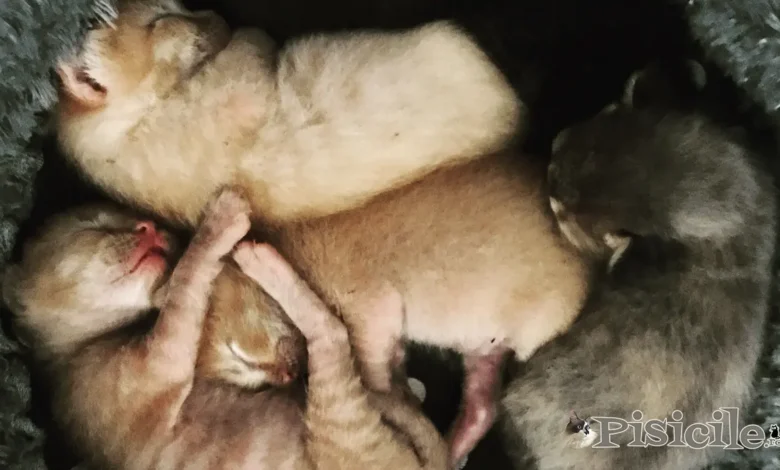
If something happened to the mother cat or you found kittens, from this article you will find out how to care for orphaned kittens, left alone, without a mother.
Most street cats give birth about twice a year. Most give birth to kittens in the spring and/or fall. They are the periods in which we find discarded kittens through parks, left in boxes or, worse, in bags next to trash cans.
Unfortunately, kittens end up being raised by humans from their first day of life. Reasons such as illness of the mother cat, death of the mother, abandonment, rejection of the kittens by the mother or insufficient milk of the mother force us to take responsibility for raising the little ones. In the first stage, we must be aware that newborns require special care, a lot of attention, patience and responsibility. You don't have to panic, however, if you find a kitten somewhere and want to help or adopt it. You just have to make sure you have enough time to deal with it. Caring for orphaned kittens is not as hard as it seems.
Subject
What you need to know to care for orphaned kittens
To care for orphaned kittens, you have to take into account their needs.
Kittens need warmth
In the first days after birth, kittens cannot regulate their own body temperature, so this task will fall to you. For this, you can use a box with high edges, thermal blankets, thermal mattresses, thermal pillows or an infrared lamp. You can place them on fluffy blankets, taking care not to place the external heat source too close to the chicks to avoid burns. It is important to constantly check the temperature around the kittens. In the first week, the optimal temperature for kittens is around 30 degrees Celsius, in the second week it drops to 28 degrees Celsius, in the third week it reaches 26 degrees Celsius, and from the fourth week the kittens can adapt to room temperature . It is also recommended to maintain an optimal humidity around 55% - 60% to promote healthy kitten growth.
Feeding orphaned kittens
Because kittens can quickly become dehydrated and hypoglycemic, it is important to ensure an adequate fluid-to-nutrient ratio.
Colostrum is the first milk secreted by the mammary glands, being rich in essential nutrients and antibodies. They can be assimilated by the chicks only in the first four days of life. Therefore, even if we replace breast milk, it cannot be optimally replaced. In the first 3-4 weeks of life, it is necessary to give kitten milk powder. In emergency cases, puppy milk powder can also be given, but only until the kitten-specific product becomes available.
The milk powder must be mixed according to the instructions on the package, without leaving any lumps, and the chicken will be fed this milk at a temperature of 37 degrees Celsius. We must be careful, however: the already prepared milk should not be used if more than 1 hour has passed since preparation. There are many ready-made products on the market in cans, which can be opened and stored in the freezer in trays, ice packs or serum tubes, so that we have at hand the necessary small portions. If we do not have the possibility to purchase these products or live in the countryside, we can help the kittens by offering them goat's milk.
In case of emergency, we can mix 90 ml of water, 90 ml of condensed milk, 120 ml of non-fat milk yogurt and 4 egg yolks. Mash everything, strain and heat to about 37 degrees Celsius. During the first three weeks of life, kittens should be fed approximately every two hours. If the kittens are too weak, they must be fed every hour, and if they refuse food or lose weight despite being fed, a tube should be inserted by the vet.
In addition to milk, kittens can be given a vitamin paste from the first day of life. After about four weeks, you can give the kittens porridge in the form of a special kitten scratch. If this is not available, you can use baby porridge. Reduce the amount of milk given according to the amount of food the kittens consume. For the picky eaters, you can get them to eat by heating the food.
Pipettes, syringes and bottles are the most commonly used and useful alternatives. Pay close attention to the chick's position during feeding. In no case do not hold him back. Take a warm blanket, place the baby on the tummy or in a sitting position and start feeding. Support your little one's head and upper body, keeping them elevated even a few minutes after they've finished eating. The abdominal and anal area should be massaged regularly during the first 20 days of life, with a slightly damp and warm handkerchief, to stimulate digestion and urination.
Excretion and indigestion
Kittens normally pass feces two or three times a day, or once more. Kittens that have not eaten for a long time will defecate approximately 20 hours after the first feeding.
Just like babies, kittens can suffer from certain ailments: indigestion, bloating, diarrhea, constipation. To avoid digestion problems, you can replace the water used to prepare the milk with fennel tea, which is also often used for babies' ailments.
If the kittens have diarrhea, you can use the mixture of boiled water with glucose, you can add probiotics prescribed by a specialist to the warm milk, or you can mix the milk with black, chamomile or blackberry tea, but in a reduced concentration.
In case of constipation, paraffin oil in bottles or enemas can be used. For the enema, you can use a syringe with a teat.
Parasites should be on your mind when caring for orphaned kittens
Because they are raised by humans, kittens do not benefit from the protection of their mother's colostrum, which makes them very susceptible to various infections. Fortunately, there are pastas with antibodies that fight against the most common pathogens. Another method would be a blood transfusion for the first four days, from the mother cat if possible, or from another cat.
Deworming is carried out at 2, 4, 8 and 12 weeks, then monthly until the age of 6 months, and then as needed.
Regarding ectoparasites, kittens under 8 weeks of age cannot be given preparations. Up to 8 weeks, you can get rid of fleas individually, using a special flea comb.
After 8 weeks, you can use a spray against fleas, applied evenly on the kitten's body. Also, the kitten should be combed at least once a day with the flea comb, and the textiles it sits on should be changed daily. These materials should be washed at a temperature of 75 degrees Celsius.
The first vaccine would ideally be given at 8 weeks and at a weight of 1 kg. The vaccine should only be given to healthy kittens to protect them against common viruses.
If you choose to adopt an older abandoned puppy, it is recommended that you give it a special space in a room where it can retreat if scared. You can put a ticking clock next to his cage as it imitates the sound of the mother's heartbeat, and also a bottle of warm water in the kitten's bed will give him comfort as he will feel it as if it were the mother's body heat. Try to isolate the kitten from loud noises or crowds until it gets used to people and learns to socialize.
Personal experience with adopted kittens
Two cats, adopted by the pup, in 2009 and in 2019. In the picture below, they are already almost 11 years old and 1 year old.
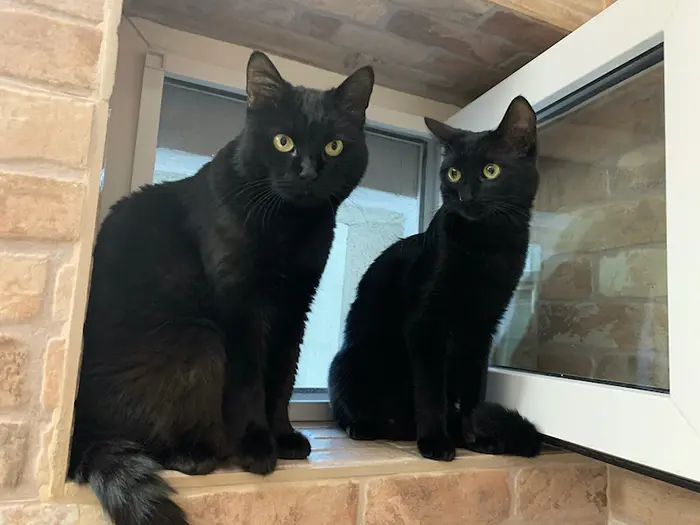
The two black women share the same story. 10 years apart from each other. "Mouse", found almost 12 years ago, crying on a summer morning in front of the block. I went downstairs, took her in my sweatpants pocket, fed her and left her around the house to her own devices. He immediately attached himself to me. He was about 2-3 weeks old and I didn't bother to give him too much attention. He ate anything. From cooked food to canned cat food and grains. The litter box seemed to know it beforehand. He struggled to jump over the high ledge of the litter and finally succeeded. He never defecated in the house.
"Buffy", an indigo story. Still found when she was around 2-3 weeks old, only 10 years away and in the front garden of another block. He adapted immediately and had no qualms about going straight to Soritel's food. However, there was also a difference. Very dirty and full of grafted fleas. Washed in the sink and emergency dewormed. She risked being devoured by parasites. Apart from special kitten food, I haven't taken care of her in the slightest. Alone she went to the litter box, alone she got to play with whatever she found around the house, even if Sorițel didn't accept it the first time.
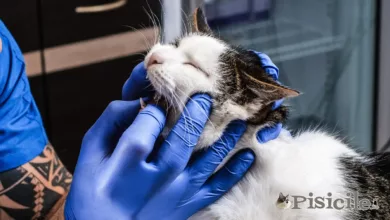

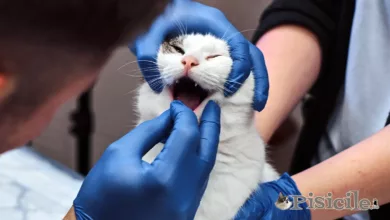
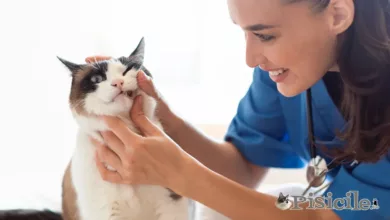
6 Comments